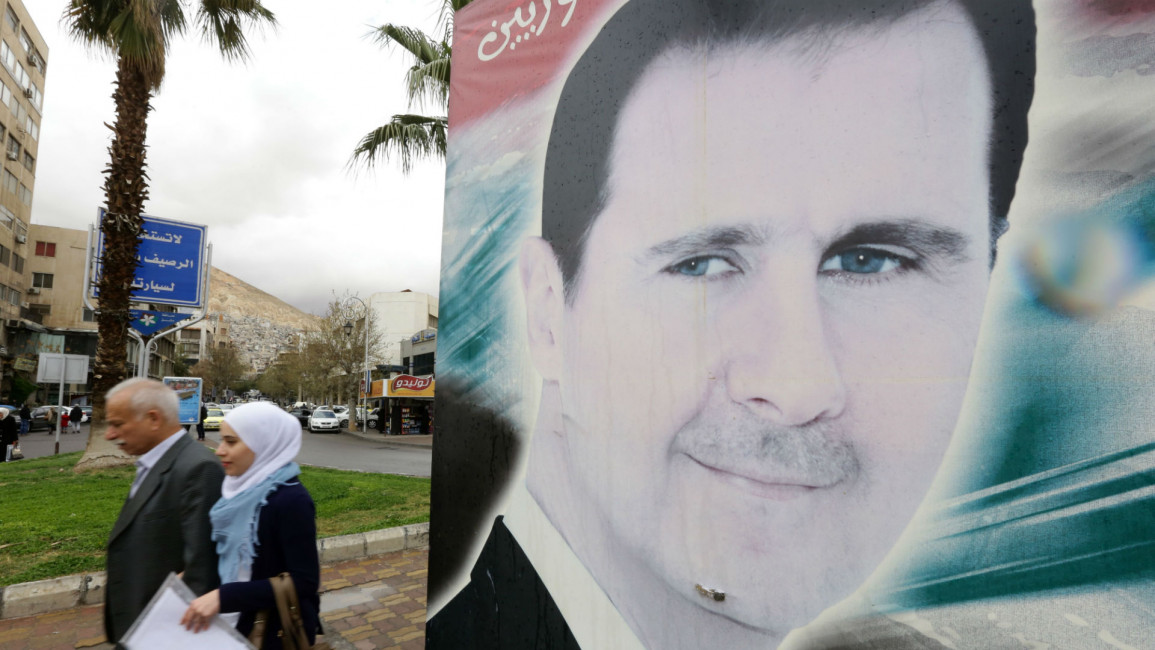Controversy around alleged US-Russian agreement on Assad departure
US Secretary of State John Kerry has informed Arab states that the United States and Russia have agreed that Syrian President Bashar al-Assad will depart to a "third country", outside of Syria, a source in the UN Security Council told pan-Arab daily al-Hayat.
The reported agreement aimed at putting an end to the bloody five-year-old war, which was made behind closed doors during talks on military operations against the Islamic state group [IS], failed to include a timetable for Assad's departure.
"Kerry told the involved Arab countries that the US and Russia have reached an agreement on the future of the political process in Syria, which includes Assad leaving to another country," the unnamed diplomat said, in a report published on Thursday.
"The US-Russian agreement has come about through behind-the-scenes diplomatic communications on military operations against IS, which have also included Assad, who will leave at a certain stage to a third country," the source said.
He added that the timing of Assad's departure it is still unclear.
The Kremlin have denied the report, "Al-Hayat published information which does not correspond to reality," Kremlin spokesman Dmitry Peskov told journalists on Thursday.
 |
|
| UN-led talks paused last week [Getty] |
The report comes as Assad has reiterated his call for a national unity government, as Washington said his inclusion would make any such proposal a "non-starter".
In an interview published on Wednesday, Assad told Russian state media it would be "logical for there to be independent forces, opposition forces and forces loyal to the government represented" in the new authorities.
He pushed back against opposition demands that it should be put in place without his participation, insisting that the transitional body they are calling for is "illogical and unconstitutional".
"Neither in the Syrian constitution nor in the constitution of any other country in the world is there anything that could be called a transitional body of power," Assad said.
Responding to Assad's interview on Wednesday, White House spokesman Josh Earnest said the Syrian leader's own participation would break down the political process.
"I don't know whether he envisioned himself being a part of that national unity government. Obviously that would be a non-starter for us," Earnest said.
Talks led by the UN's Syria envoy Staffan de Mistura paused last week with the sides deadlocked over the fate of Assad, who the opposition insists must leave power before a transitional government is agreed.
Syria's main opposition High Negotiations Committee flatly rejected the demand from Assad for any transitional government to include his regime.
"There is an implicit agreement between between the US and Russia to find a quick solution to the Syrian conflict, which could materialise sooner than expected," spokesman for the National Coalition for Syrian Revolutionary and Opposition Forces, Gaith al-Ahmad told The New Arab.
"Recently, there have been clear US-Russian agreements to not target US-backed moderate opposition groups, maintain the truce and oust IS from Palmyra with the support of Russian air raids," Ahmad said.
"Both the US and Russia know that bringing stability to Syria the region will come through a genuine political transition, which cannot happen without Assad leaving Syria," he added.


![President Pezeshkian has denounced Israel's attacks on Lebanon [Getty]](/sites/default/files/styles/image_684x385/public/2173482924.jpeg?h=a5f2f23a&itok=q3evVtko)



 Follow the Middle East's top stories in English at The New Arab on Google News
Follow the Middle East's top stories in English at The New Arab on Google News


